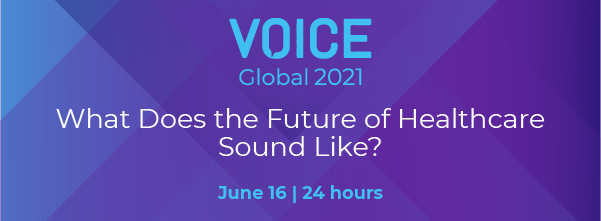What Does the Future of Healthcare Sound Like?
VOICE Global 21-06-2 Modev Staff 3 min read

The healthcare industry is embracing voice technology as a hands-free means of interacting with patients and clinicians to avoid the spread of COVID. Speaking is also a more natural and efficient way to reduce waiting room times and decrease time-consuming tasks like typing.
“We see across the board that we’re able to improve treatment outcomes by providing more value to patients at each visit,” Dr. Chithra Durgam, dentist and expert in creating voice skills in healthcare.
Natural language processing is also more personable as healthcare professionals can increase eye contact and engage more naturally with patients in the exam room. For example, Unified Physician Management is rolling out a voice-enabled digital assistant called Suki that uses AI to help doctors with medical charting during patient visits.
The average clinician spends two hours on data entry for every one hour they spend providing actual care. Data entry, documentation, and the electronic health record itself, are often cited as drivers of increasing levels of burnout in medical care.
A 2019 consumer study conducted by Voicebot and Orbita found that 52% of consumers were interested in voice technology for health. In fact, many consumers already Google their symptoms -- a trend that now also includes asking voice assistants about illness symptoms and medication information.
“The healthcare system is so overworked, but it’s amazing that you can now tell your device how you’re feeling and that it can actually give you care,” said voice enthusiast and physician Dr. Teri Fisher. “I believe that we’re all going to start using our voice as our operating system.”
We’re starting to see that these smart speakers are decentralizing healthcare, making it more accessible to more people. Mayo Clinic has adapted voice capability, allowing consumers who own smart speakers to self-diagnose health symptoms.
According to a report by the Center for Diseases Control, ER visits from March to April were 42% lower than they were in the previous year as people avoided doctor offices altogether during the coronavirus pandemic. Voice technology users are able to get health information or do preliminary screenings from the safety of their own homes. This is especially important now as we face a global pandemic that is forcing us to stay home.
For those who do walk into an emergency room, Mayo clinic and other healthcare providers are dreaming about what it may look like to have a voice assistant answer patients’ questions as they wait to be seen by their doctor.
“Patients are coming in with symptoms, and once you rule out the emergent illness, you need to give them good information and education,” Dr. Sandhya Pruthi of Mayo Clinic said. “You can put a voice-activated device in the emergency room and have the patient get answers to common questions to increase efficiency.”
While the future of voice-enabled technology in healthcare sounds good to some, it is still unclear what the future holds. Voice technology certainly sounds good for those healthcare workers where it has helped reduce their workload and personalize their in-home care, yet HIPAA regulations remain a challenge. Until the policies are clear, we can expect voice tech to focus mostly on self-diagnosis and to include disclosure and recommendation to reach out to your physician for more accurate treatment.
For an inside look at how top brands around the world are incorporating voice into their businesses across a number of industries, register to attend VOICE Global 2021 June 16. This global event will take place over the course of 24 hours, with industry leaders from more than 120 countries in attendance, along with 40 interviews featuring top voice developers and marketers including audioburst to Openstream.ai to Soundhound to Voiceflow and more. The best part? The event is completely free to register. Join the conversation.